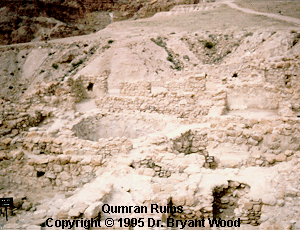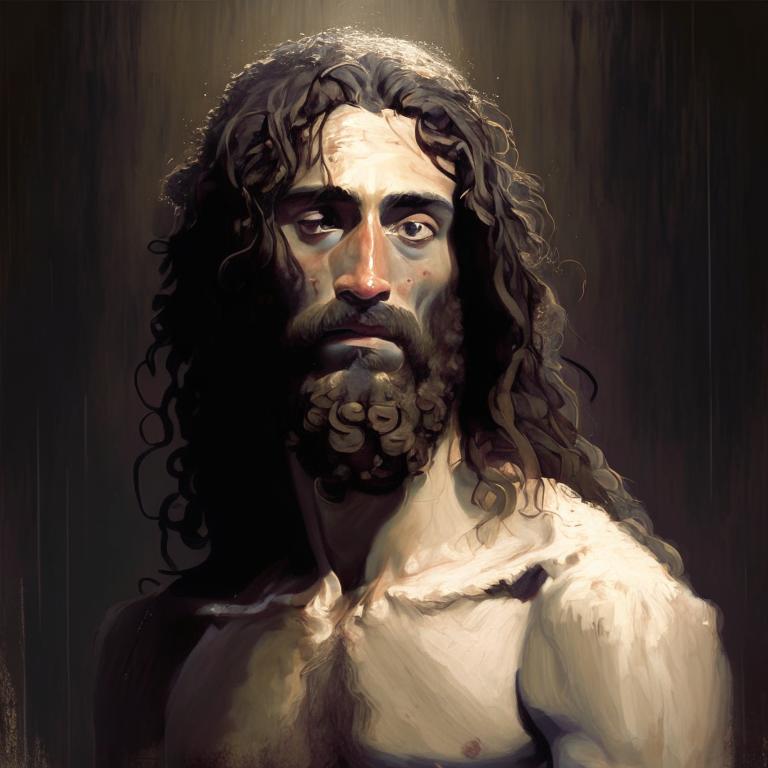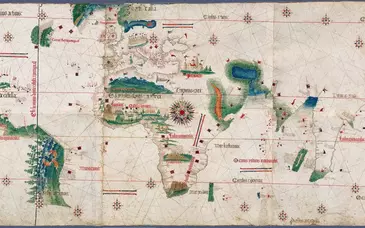John's Background
He is called the Baptist Matthew 3:1 and the baptiser Mark 6:14 to distinguish him from other John's and emphasise the distinctive ministry which he had. He was born about 7 B.C. to elderly parents named Zechariah and Elizabeth. John was raised in the priestly line of Aaron on his mothers side and Abija on his Fathers side. His Father was a priest who served in the temple at Jerusalem. His parents were Luke 1:6 6 'both righteous before God, walking in all the commandments and ordinances of the Lord blameless.'
Characteristics
John's Ministry
'Verily I say unto you, Among them that are born of women there hath not risen a greater than John the Baptist: notwithstanding he that is least in the kingdom of heaven is greater than he.'
Matthew 11:11
The ministry of John the Baptist is given a significant place in the writings of all four Gospels. The appearance of John was the most important event in Israel's history in the previous 300 years. He is the last Old Testament prophet. But John is both a prophet and the fulfillment of prophecy.
John was born six months before Jesus was born and was to be the forerunner of the Messiah. John took up residence in the arid wilderness of Southern Judea and Jordan valley region. His ministry began in the 15 th year of Tiberius which would place it about A.D. 26, 27. John's dressed and acted much like Elijah, the old prophet of Israel. He called men to repentance and self-denial which he demonstrated first in his own life.
Matthew 11:1-19
This passage indicates how Jesus viewed his ministry. Matthew 11:7 For Jesus, John was not a fickle, vacillating person but a sturdy oak. John wasn't accustomed to kings palaces and fancy dress, his clothes were made of camel hair with a leather belt. His food was locusts and honey. Matthew 3:3,4. He had even rebuked the king who throws him in prison. Jesus tells the crowds not to judge a man by one mistake, but rather to form a true opinion of a man by looking at his whole character. V. 9 The people saw John as a prophet because he spoke as a prophet. Matthew 3:7-12. But here Jesus says that he is more than a prophet, John is also the object of prophecy.
Malachi 3:1
John the Baptist according to Christ's own words is the messenger who is to be the forerunner to the Messiah. Malachi 4:5,6 His task is to pave the way for the coming of the Messiah. He was particularly commissioned to prepare the hearts of the people for His coming. He is called the greatest simply because he has pointed out the Messiah with the greatest brightness.
V. 12 The Kingdom of heaven is either near or even present through the Baptist's own work. The kingdom was passing on from the cloak of prophecy in which it was wrapped in the Old Testament. This kingdom was something real that was affecting the thoughts and emotions of men. This made him more than a prophet. But verse 11 shows that John himself could not be classed in the New Testament era which would come into effect with the work of Jesus. Those who are least in this kingdom are greater than he. This does not mean that John was not saved nor does it mean that John would be excluded form the kingdom of heaven. It means that John continued to live his life on the basis of the Old Testament.
V. 14 Jesus identifies John the Baptist with Elijah Malachi 4:5,6 John was a reproduction of Elijah. Both were prophets, preached repentance, wore coarse clothes and lived off the land, existed in the wilderness, people flocked to hear them. Some doubted that John was the Elijah spoken of by Malachi. Matthew 17:10-13.
John denied being Elijah in the literal Jewish sense. The Jews looked for the real personal Elijah to come back and be resurrected. But as Jesus understood John as Elijah, John the Baptist would agree with this. John the Baptist would not deny being the fulfillment of the prophecies of Isaiah and Malachi.
John the Baptist not only represented Elijah but was the forerunner of the entire Old Testament with reference to Christ the Messiah. The real substance of the Old Testament was summarised in John. The two elements of the law and the prophets are represented in the message of John. 'Repent for the Kingdom of God is near.' It is a prophecy and it speaks of repentance which is necessary in order to draw close to the kingdom and in view of the judgment to come.
John's Message
There are three elements to the teaching and message of John the Baptist. There is a message about the future Kingdom of heaven, a prophetic warning and an ethical instruction.
Kingdom Teaching
Matthew 3:2 says, 'Repent ye: for the kingdom of heaven is at hand.' John was announcing the coming of the Messiah. He spoke of a mightier One to come after him in about seven other places. Matthew 3:11, Mark 1:7; John 1:25; Acts 13:25 John never drew attention to himself but to the Lamb of God which takes away the sin of the word.
Prophetic Warning
The message concerning the Messiah's kingdom was also accompanied by a call to repentance. John challenged the Jewish idea of National salvation. Physical descent from Abraham did not guarantee the favour of God. Matthew 3:7. The axe is already at the root of the tree. Luke 3:9 It speaks of present wrath upon sinners as well as the wrath to come.
Ethical Instruction
John followed his prophetic warnings about wrath with and appeal for repentance. John presents the true biblical repentance, that is repentance which produces fruit, as the way of escaping coming judgment. A radical change of attitude resulting in a real alteration of life which would lead to sharing possessions, Luke 3:11 justice v. 13 and contentment v. 14.
John's Baptism
Baptism was certainly not a new idea to the New Testament era. Washing and cleansing was common in the Old Testament.
Baptism of Proselytes
A non-Jew who desired to become a Jew was called a proselyte. The levitical law required that such a person be cleansed by means of washing because of their previous contact with Gentiles. John's baptism differed from this in that Jews were also baptised.
Ritual Washing
There were various types of ritual cleanings in Israel performed for various reasons. These were repeated over and over again while the baptism of John was only performed once.
Essene Initiation

Baptism was the way that new members of the Essene sect were initiated into the Qumran community. However John's message was offered to the whole nation, not given to a select group or sect.
For Further Study See Qumran Community
Significance
The significance of John's baptism can be traced back to his prophetic office. It was prophetic symbolism. The Prophets often performed the word of God as well as preached it. 1 kings 11:26; Jeremiah 19; Hosea 1 Now as a typical prophet John used an object lesson to communicate His message of repentance.
John's baptism had two aspects to it. One was prophetic and the other was personal. It was prophetic in that it spoke of the Messiah. It was personal in that called people to repentance and personal change.
John's baptism was a sign of the greater baptism of the spirit in salvation which the Messiah would administer. Mark 1:8 John's baptism showed mans' sinfulness and His need for repentance. The baptism itself did not forgive them their sins. However it has such a close association with repentance and forgiveness of sins that the two ideas are often found closely connected in the sentence.
John's baptism is unique in its preparatory function for the coming of the Messiah. It is not the same as the New Testament baptism of the early Church.
John's Imprisonment
John spoke out against the marriage of Herod. Herod had married his brother Philip's wife Herodias and John said that it was wrong. Luke 3:19, 20 John rebuked him for other evil act he had performed as well. John was arrested and imprisoned sometime before the second Passover of Jesus' ministry. John 5:1


